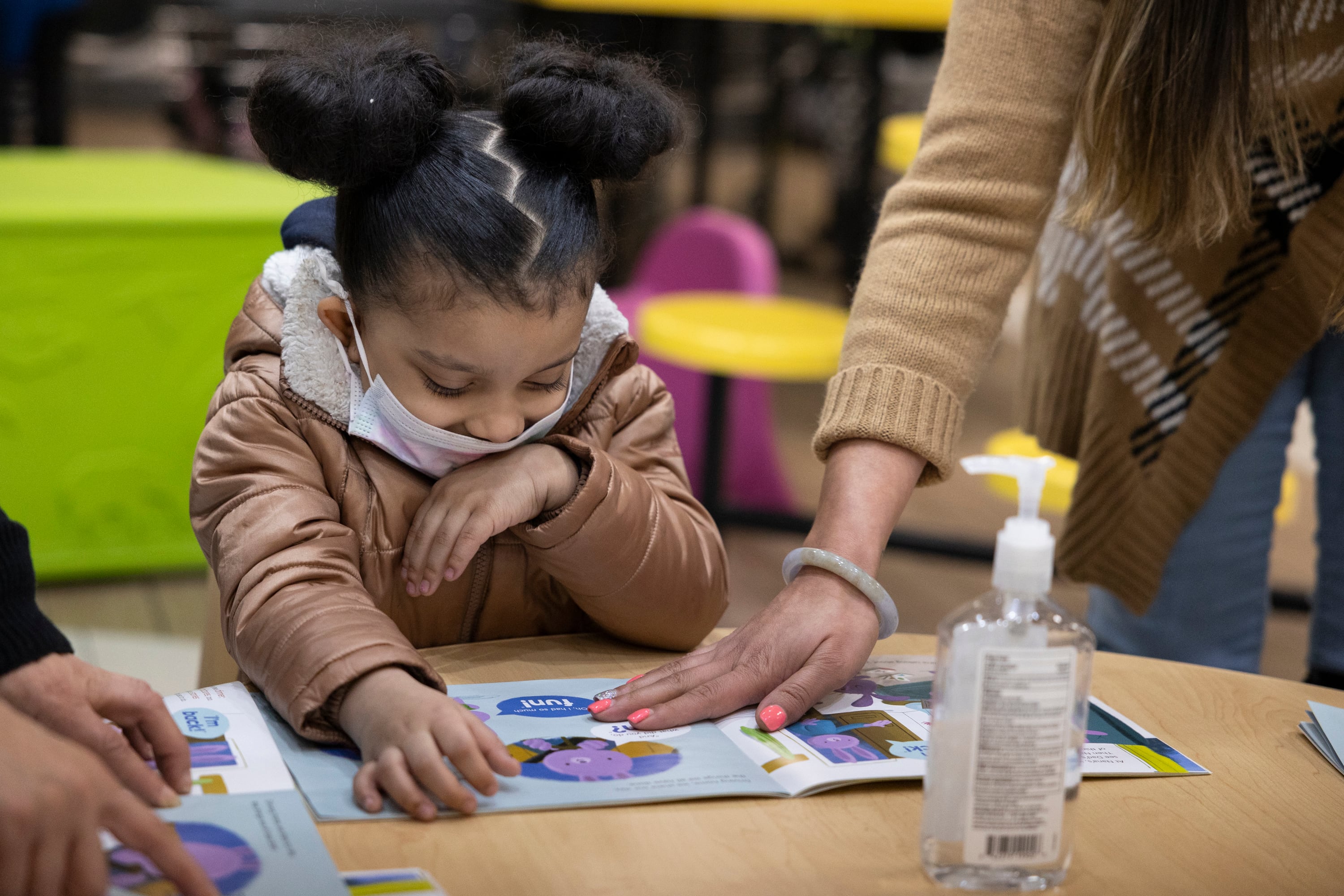The vast majority of Colorado’s early elementary teachers have completed training on the science of reading — a milestone in the state’s ongoing effort to boost reading proficiency rates among Colorado schoolchildren.
Around 20,600 of the state’s approximately 23,000 kindergarten through third grade teachers met the 45-hour training requirement as of October, according to state education officials. The science of reading is a large body of research about how children learn to read.
Over two meetings this fall, including one on Wednesday, the State Board of Education granted extensions to a dozen school districts where most but not all teachers have completed the training. They include large districts like Adams 12 and Colorado Springs 11 and small ones like East Grand and Cotopaxi. In most cases, the reason teachers didn’t finish the training was because they were on family or medical leave or had other extenuating circumstances.
In September, officials from a handful of school districts described to Chalkbeat bureaucratic or logistical obstacles that prevented full compliance with the training rules. For example, some teachers had recently moved from other states, switched to jobs in kindergarten through third grade, or hadn’t yet been assigned state ID numbers needed for districts to submit the training data.
Floyd Cobb, associate commissioner for student learning at the Colorado Department of Education, said in most districts seeking extensions, fewer than 5% of teachers still had to complete the training. The deadline for completion was Aug. 1.
Receiving an official extension matters because there’s money at stake.
Districts where all K-3 teachers completed the training or districts where waivers were granted will get tens or hundreds of thousands of dollars — in some cases more than a million — to help struggling readers. Until now, that annual funding, which is slated to go out in November, hasn’t been tied to sweeping mandates that apply to individual educators.
Cobb said Wednesday that eight of 179 districts still haven’t submitted data showing their K-3 teachers completed the training. An additional eight districts requested extensions but hadn’t verified the data they submitted to the state.
The state could delay the delivery of reading money to those districts or withhold it completely if they don’t satisfy the requirements, but it’s unclear if that will happen. State officials said they are still working to check districts’ compliance.
Ibeth Leon Ariza, who teaches students newly arrived to the United States at Homestake Peak School in the mountain town of Avon, said she liked the online training, which she took with a live instructor on Saturdays last winter.
A native of Colombia and a teacher there before she moved to Colorado, she has more experience teaching reading in Spanish, which she said is different — and easier — than teaching reading in English.
“It was really helpful for me,” she said of the training. “I have all the tools to support and teach my kids and I’m applying that for my newcomers.”
Teachers had several ways to complete the training requirement, including through free online classes provided by the state, or other courses, such as Language Essentials for Teachers of Reading, or LETRs. Teachers with certain reading specialist credentials also met the requirement and didn’t need to do extra training.
The training requirement was one of several that put more teeth into the state’s main reading law in 2019. Around that time, lawmakers, education officials and dyslexia advocates were growing increasingly frustrated that millions of reading improvement dollars were flowing to school districts every year but proficiency rates on state literacy tests had barely budged.
At the same time, many teachers said their teacher preparation programs hadn’t taught them much about teaching young students how to read. The state took a two-pronged approach to fixing the problem — targeting both existing teachers and teachers-in-training. Besides mandating the K-3 teacher training as part of the reading law, the state pushed Colorado’s teacher preparation programs to purge debunked reading methods and ensure coursework included scientifically based approaches to reading instruction.
Over the last three years, the state ordered four traditional teacher prep programs, including some of Colorado’s largest, to make changes to their reading coursework after state reviewers found shortcomings. Additional universities are currently undergoing such reviews.
Ann Schimke is a senior reporter at Chalkbeat, covering early childhood issues and early literacy. Contact Ann at aschimke@chalkbeat.org.






